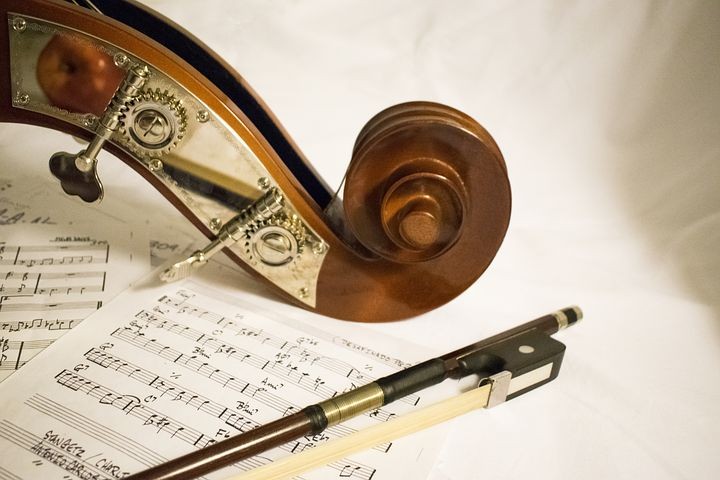News and Views Please subscribe, share, comment!

How to overcome your stage fright
Posted in Play: March 2013
Prepare, breath and visualize
Here are three very useful steps to control your stage fright:
1. Prepare
Practice is one of the most important steps. Nothing can replace our time spent with the instrument. Do not worry if the moment to say” Now I am ready” or “I studied enough” doesn’t come yet. This happens to all of us, but you still have to get used to the idea that at some point you have to play the repertoire on stage, in front of an audience. As soon as you start realizing this and preparing yourself - the better. You will become less anxious and more self-confident.
2. Breathe deeply
We are so used to breathe fast and shallow into the upper chest, especially when we feel under the pressure. This creates an imbalance between oxygen and carbon dioxide which can lead to: dizziness, muscle tension, stomach pain, fatigue, a fast heartbeat etc. The solution is to use the abdominal breathing. This exercise is very simple and can be repeated for two or three minutes.
Breathe in deeply and slowly counting to four, hold the air for two seconds and than breathe out gently and calmly.
3. Visualization
The visualization technique can be practiced several days before playing in front of the public, but also when playing the same day. Start with a deep breath in order to become relaxed. Than close your eyes and try to visualize yourself playing at your best performance on stage. Use your senses and imagine details: sounds, lights, expression of public, feelings. This exercise can be made during a whole piece or just some parts of it. Try obtaining the best performance in your own imagination.
Helen Spielman
20 Mar 2017 19:55
Lidia, thank you for bringing up the important topic of performance anxiety, which almost every musician deals with in one way or another. I agree with your three tips. I'll gladly add another, and I'd like to add something to your discussion of mental visualization, if I may.
Another strategy to manage performance nerves is to practice the three steps of Self-Compassion, as shown by evidence is effective for maintaining high standards under pressure. I invite you to read my recently re-printed article on this important topic for musicians on http://www.AuditionCafe.org
While visualization can be effective a few days prior to a performance or audition, it has been found MOST effective if practiced several weeks ahead of time, every single day. Visualization in its most efficacious form is not only thinking or imagining ourselves doing our best, but needs to be done while our bodies are completely relaxed. Relaxation can be achieved via progressive muscle relaxation or some other means, but without the relaxation part, we lose much of what we want to create: the experience of actual mental rehearsal, in which we "forget" where we are, the room we're in, etc. and are actually experiencing the performance in our minds, similar to daydreaming, but with intent.
Again, thank you for bringing up this topic for discussion. There are more information on my website if you are interested.
Helen Spielman
Performance Anxiety Coach
http://PerformConfidently.com
Post a comment
Subscribe
All fields denoted by an asterix(*) are required
Lidia
22 Mar 2017 10:31
Dear Helen, thanks for your comment and for sharing more information about visualization! I’m also glad that you liked my suggestions about stage fright.
In the last years my approach changed and today I would say that the most important step is to open yourself and to talk about your stage fright with somebody who understands you, has a lot of experience and is passionate about finding the most effective solution for you.